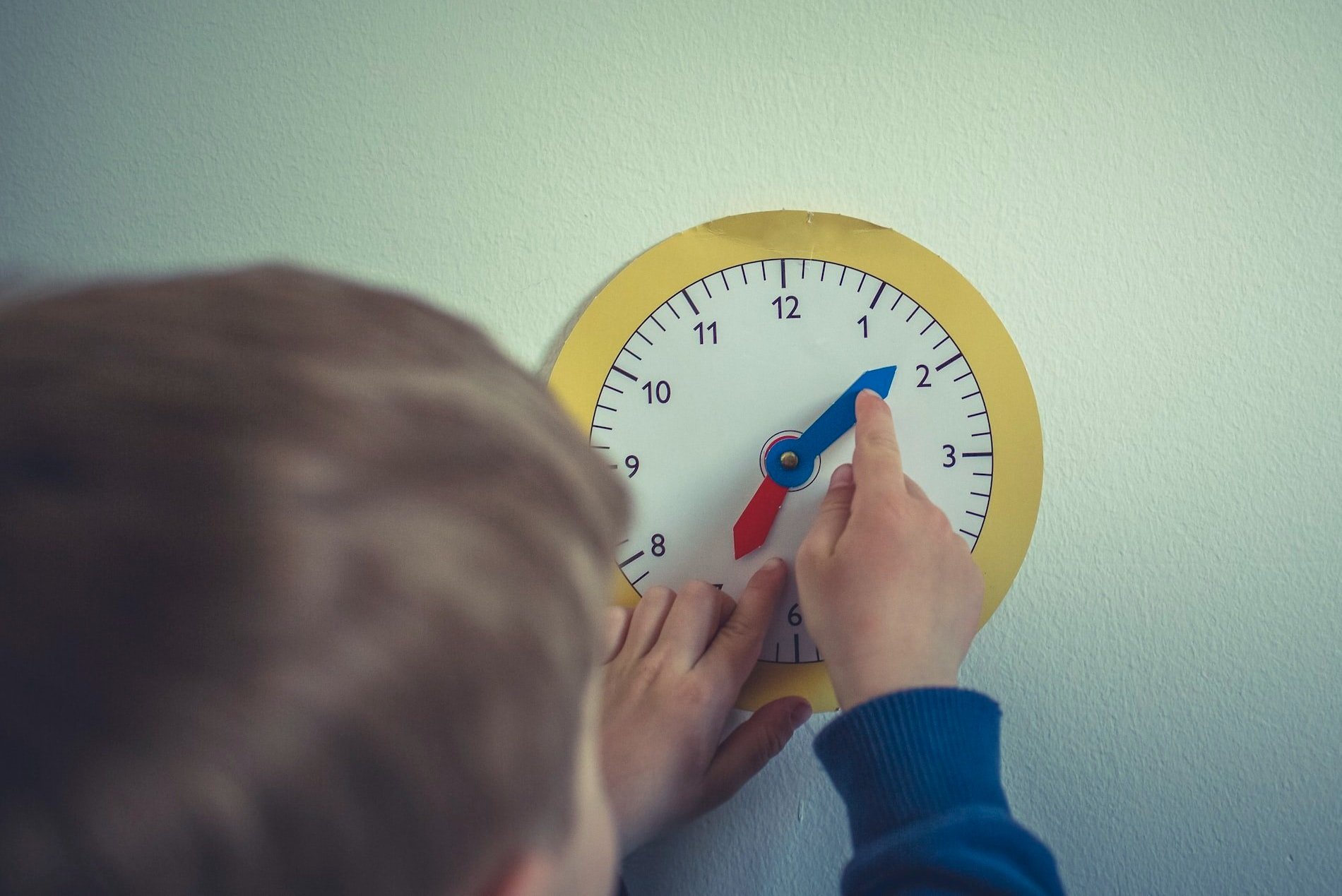Starting the Year Strong: Habits for a Classical Home Life
It’s not uncommon for children (or even whole families) to think of school as a “job.” When I was a kid I can remember having multiple conversations with my parents about how my primary job at the time was school. Athletics, after-school or weekend work, and time with friends were all considered secondary to the responsibility of showing up every day at school and giving my best.
As adults, we all know that there are certain habits that help us show up feeling prepared and at our best for work. Students are no different. Getting a good night’s sleep, eating well, and exercising are all contributing factors to success in any school - not just classical ones.
There are, however, some things that can be helpful specifically for classical students to start the year off on the right foot. Used in the long-term, these habits will help to support and foster a truly classical life at home, month after month.
#1 Stay Organized
#2 Consider your dinnertime or commute conversations
#3 Add small, virtue-oriented tasks to your daily life.
#1 Stay Organized:
This is easier said than done! In my own home, it’s easy to toss around the word “organized” and talk about it as a priority; but actually holding myself or others in my household accountable to staying organized is much more difficult.
For younger students, I recommend two primary tactics of organization. First, make sure they have a planner. Then, find some time for a weekly or nightly planner check. Make sure that homework, quizzes, and tests are written down legibly. A lot of teachers will leave time for this toward the end of each school day, but working one-on-one with your student to be sure they understand the importance of keeping assignments organized will serve them when they get to middle and high school. And, of course, don’t let blank pages slide by unnoticed. If your student has no homework for a certain class, have them indicate this by writing it out. This way, there’s no confusion between “I have no homework” and “I forgot to write it down.”
“Children and teenagers often think that organization is a tedious task,
and they fail to see that it actually makes their lives easier and success in school more attainable.”
Second, take a look at your student’s notebooks and class notes. Are they clearly written? Can they be reviewed easily? Are they in the correct notebook? They’re small habits, but they can be powerful building blocks in the long-term scheme of education.
For older students, take some time each month (or as frequently as you would like) for an organizational reset. Students should take the time to clean out their lockers and tidy them. At my school, we often encounter what I like to affectionately call the “leafy” student - that is, the student who sheds papers from pockets, zippers, and books as he walks down the hallway. Upon further examination, we discover that these slightly crumpled papers are in the wrong place, and are usually partially or fully completed assignments that simply never made their way to a teacher’s inbox. If you have a “leafy” student - this monthly organization time is great for setting papers aright before things get out of hand.
One of your best tools as a parent can be the class syllabus. Of course, you always have to sign the syllabus -- but, do you read it? ? When you get that syllabus, set it right next to a calendar and write down the crucial dates. This will enable you to support your student as they learn about juggling multiple deadlines among their classes and parsing out their work so they don’t become overwhelmed.
The most important thing here, no matter your student’s age, is to have intentional conversations about staying organized. Children and teenagers often think that organization is a tedious task, and they fail to see that it actually makes their lives easier and success in school more attainable.
#2 Consider your dinnertime or commute conversation:
It’s all fine and good for me to tell you to have meaningful conversations with your students right up until they pull a classic “kid move” and give you one-word answers for everything. I have been that teenager in the back of the car, and I admire my mom for persevering through my youthful surliness.
So, I’ll start by encouraging you not to put too much pressure on yourself to have this go perfectly every time. After all: you’re not teaching class -- you’re just catching up after a long day.
Sometimes, as parents, we have to help show our kids how to have these kinds of conversations. The kind where we talk about more than what’s new on Facebook or what so-and-so said during lunch. Those conversations have their place too, but in order to support our classical students and reinforce what’s happening in the classroom - we have to show them how to have interesting, meaningful conversations. How do we do that?
“What do you find interesting? What do you wonder more about? What was confusing? What was absolutely hilarious?
Bring these questions to the dinner table or your afternoon commute. “
I don’t have a perfect roadmap or script - at least not one that will sound even remotely natural. I do, however, believe that this gets easier when we, as adults, are pursuing our own personal and intellectual growth.
What are you reading and consuming? If you have older students, you might enjoy reading what they are reading in class. Take, for example, J.R.R Tolkien’s The Fellowship of the Ring - a 10th-grade summer reading book at my school. This is an example of a delightful read, full of interesting things to talk about. You don’t have to be a literature buff to enjoy Tolkien’s unexpected asides or smile dreamily at the picturesque Bag End.
By reading what our children are reading, we are able to ask more specific questions, laugh alongside them at the comedies, and lament the tragedy of certain characters or plots
Another option would be listening to an audiobook or podcast together in the car. Audible has some excellent options for both younger and older students.
What do you find interesting? What do you wonder more about? What was confusing? What was absolutely hilarious? Bring these questions to the dinner table or your afternoon commute. You might be surprised at the conversations you can have - even if they are in short spurts.
#3 Add small, virtue-oriented tasks to your daily life:
We often think of virtue in the context of big, monumental tasks. We remember General Washington’s display of courage in crossing the Delaware or Frodo Baggins trekking across foreign lands to cast the One Ring into the fires of Mount Doom. We assume that every act of virtue needs to hold that kind of weight in order to be worthy of discussion, praise, or general note.
But developing virtue as a habit - a key interest of classical education - starts in the small things. More often than not, our children need our help identifying what courage looks like in the context of everyday, mundane tasks. To do this, we need to strip individual virtues of their grandest moments and fancy definitions and ask ourselves “What does it look like to live this way?”
“Heroism for a second-grader looks quite different than it does for a general or a hobbit. No second-grader leads men into battle…
…but all second graders fret about ordering their own food at a restaurant, and being the first to apologize, and lending a hand to the woman in the grocery store who has just dropped an armful of groceries.”
Heroism for a second-grader looks quite different than it does for a general or a hobbit. No second-grader leads men into battle - but all second graders fret about ordering their own food at a restaurant, and being the first to apologize, and lending a hand to the woman in the grocery store who has just dropped an armful of groceries.
In the absence of great battles and terrible quests, how do we teach our children to live like Washington and Frodo? By remembering that those heroes would have leaped to help that woman in the grocery store. They lived long and consistently virtuous lives before they were called upon to perform their greatest deeds. You can bet that they attended very well to the small things. Otherwise, they’d have never been ready for the big ones.
And, here’s a last hard truth: your children will learn about virtue by watching you - and they’re never not watching. So, what are you like, day in and day out? Are you heroic and decent when it counts, or… when nobody is watching?
Children are smaller than you. For them, the small things are really quite big.








It’s becoming more and more common for schools to assign short stories or excerpts from textbooks. Or, if students do read an entire book, they do so individually rather than journeying through a novel altogether as a class. So why read whole books? Why have everyone in the class read the same thing? What makes this distinctly classical?